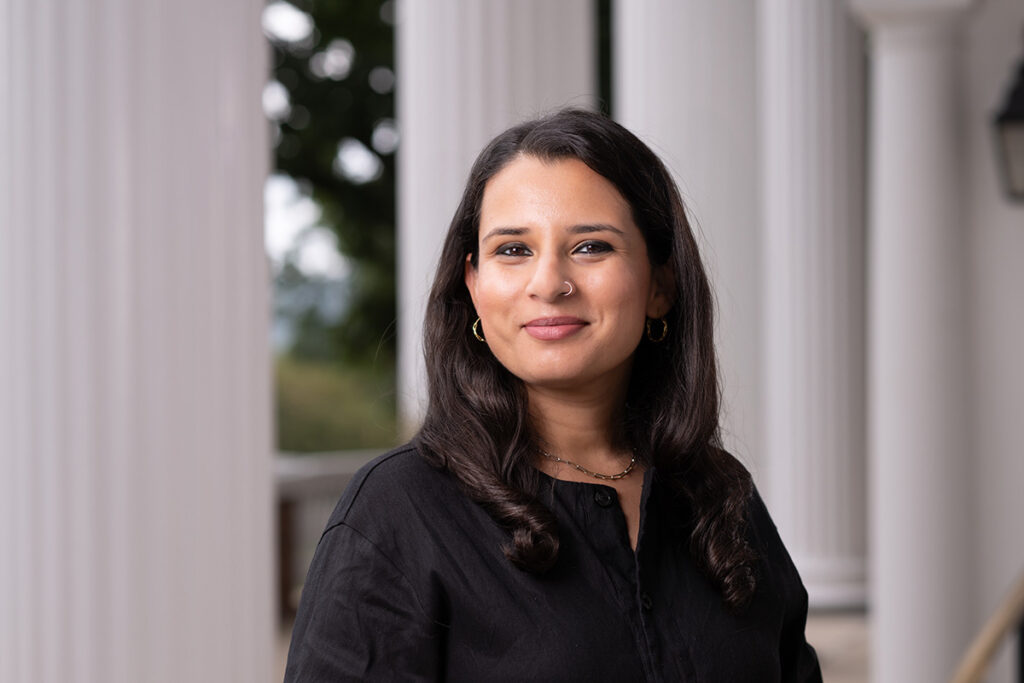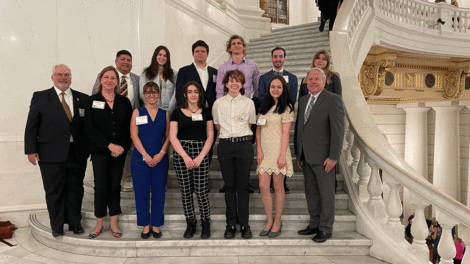
Hafsa Kanjwal | Photo by Adam Atkinson
Research area: I am a historian of South Asia and the Islamic world. My work focuses on the region of Kashmir, currently the most militarized zone in the world and facing over 75 years of colonial occupation. Last year, my book Colonizing Kashmir: State-Building Under Indian Occupation was published with Stanford University Press. In it, I examined the formation of the nation-state and its inherent relationship to processes of colonization, especially during what is often touted as the (post) colonial period.
In particular, I examine how a nation-state like India utilizes discourses of development, progress, state-building, and secularism to further its colonial ambitions. My work on Kashmir as well as American Muslim/diasporic communities continues to examine the ways in which “native informants” or “Indigenous elites” serve as collaborators, compradors, or client regimes to imperial and colonial formations. I am interested in the subjectivities of those who decide to take part in these formations, as well as the multiple ways in which the state entrenches itself in the lives of colonized or marginalized communities through discourses of empowerment, development, normalization, and feminism.
Moving forward, I am interested in understanding historical contestations over understandings of decolonization, and also thinking through the histories of different types of solidarities, including those that challenge liberal and secular frameworks.
My Lafayette journey: I came to Lafayette in 2017, right after finishing my Ph.D. at University of Michigan. I was interested in Lafayette as a liberal arts institution. I appreciate that Lafayette has given me the space, support, and freedom to explore my intellectual interests, and has also created possibilities for me to incorporate them into my teaching. I like that there are resources and people on campus who can work with you to make things happen—whether it is incorporating something into your class or inviting a speaker. I also appreciate the support and camaraderie of fellow faculty who are invested in similar questions and have deep-rooted political commitments.
What I will be teaching in the fall: I am really excited to be teaching a whole course on Kashmir called Contested Lands: The Case of Kashmir in addition to my Modern South Asia survey class. The Kashmir class will focus on why it is important to study “contested lands.” Even though these are places—often facing war, colonization, and occupation—that are at the margins, they allow us to reconsider historical developments, including normative understandings of colonialism and postcolonialism and the things we often take for granted (e.g., the nation-state, borders, or even area studies frameworks). Students will be able to critically parse through both orientalist as well as nationalist narratives about Kashmir, but also engage with Kashmiri voices themselves through literature, manifestos, and documentary film. We live in a critical moment in which it is important to challenge all sorts of hegemonies and myths about places and people, and I hope this class will allow students to do that.
Read more about faculty members who have been promoted to associate professor with continuous tenure.


